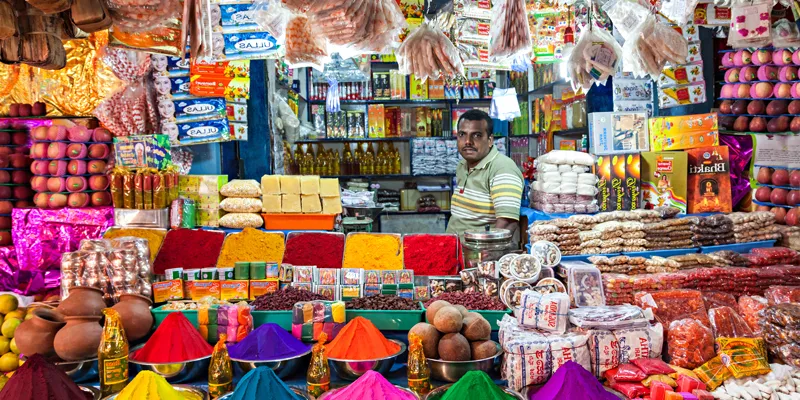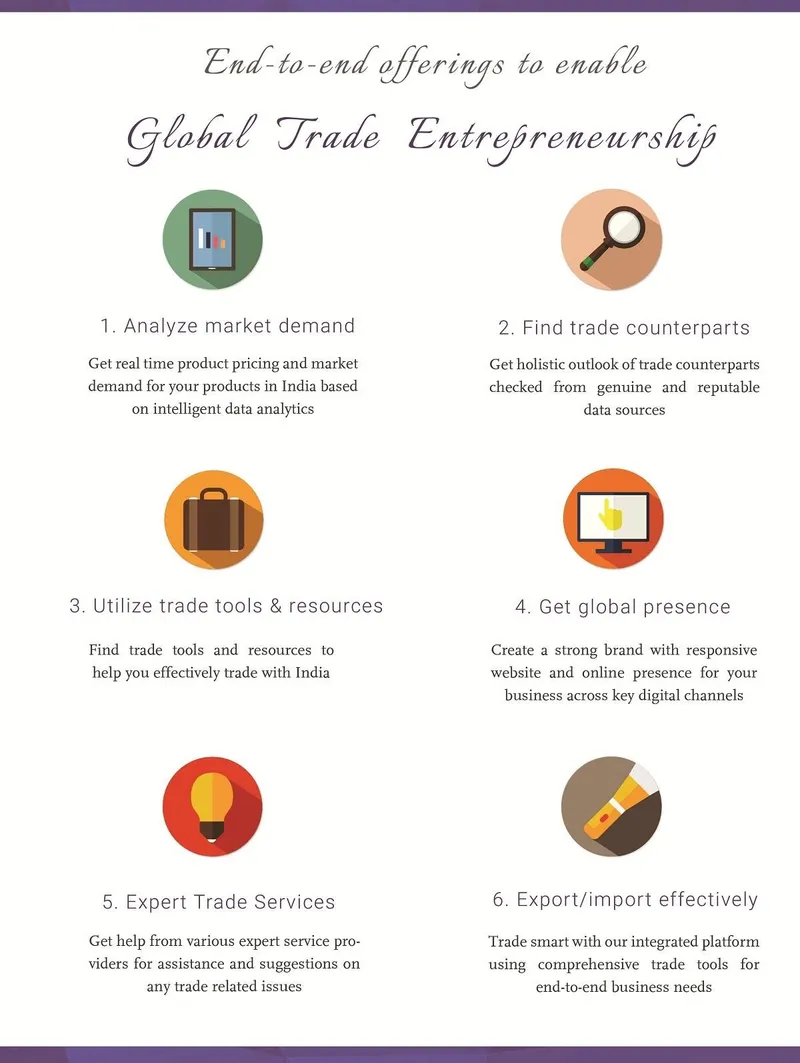Where are our global trade entrepreneurs?
Although Indian businesses have progressed considerably in recent years, becoming competitive on a global scale, Indian MSMEs have largely been left behind in this shift. While its larger counterparts are driving higher revenues and better margins, why is the Indian MSME stranded away from the rest of the global village?
“We definitely want to export, but we don’t know where and how to start. How do we figure out what to export, where to export, at what price, and most importantly, how to export? We don’t have any in-house export experts. We don’t have enough capital for executing export orders.”

These are some of the general comments I hear during the course of my conversations with Indian MSMEs that want to ‘go global’ but are not able to do so. Global trade is perceived as risky and complex, especially for MSMEs in developing nations. I myself had faced a steep learning curve when I founded my own global trading company. From engaging with a global audience to arranging an order to executing it, the process is fairly complicated. Moreover, the associated risk is real, and brings with it a lot of ‘what if’s: What if the buyer is not genuine? What if you don’t get payment for the order? What if you can’t execute the order at the agreed price or within the stipulated timeframe?
The result is easy to see - less than one million of the around 50 million MSMEs in India currently export. The government has initiated wide-ranging programmes, such as Make in India, Digital India, Skills India, Startup India and Stand Up India, with the aim of transforming India into a global economic power. The MSMEs have a crucial role to play in the success of these programmes and they will be instrumental if India is to meet ambitious targets like raising the manufacturing sector contribution in GDP to 25 percent by 2020, achieving $900 billion in exports by 2020, and becoming a $10 trillion economy by 2032.
Unfortunately, inspite of various government schemes and policies, the growth of the MSME segment, especially in the context of ‘going global’, has been anemic. Moreover, given the current global economic scenario, it’s high time we aggressively market to aim at the limited orders available globally as well extend our presence in newer markets. It’s time to think up out-of-the-box solutions to promote Indian exports.
Trade professionals can play a pivotal role in helping achieve that. For instance, why don’t we encourage trade professionals to become global trade entrepreneurs? These professionals have the best knowledge, and are well versed with all pre-export, during-export and after-export policies, paperwork and procedure. The skill to locate suitable and verified overseas customers for products, in addition to building the best marketing strategy, lies mostly with these professionals, as they have years of experience in the trends and depths of the global market. These trade professionals have the required skill, experience, and knowledge to become global trade entrepreneurs and make their contribution to meeting the goal of growing Indian exports manifold.
However, the challenge here lies in the fact that professionals in this segment are not very keen to start their own businesses given factors like the risk involved, lack of adequate capital, limited expertise in technology and lack of access to trade information sources. So, the need is to mitigate business risk, motivate, and incentivise, as well as to make it easy for these individuals to start their own businesses. This needs planning, encouragement, favourable government policies and trade platforms where they can get started easily. For example, the government could create a specialised credit scheme within the existing credit guarantee schemes for this segment, provide marketing and branding support to this segment, and announce incentives for global trade professionals turning into global trade entrepreneurs, along similar lines as the government has done for encouraging digital adoption within the country.

There are lots of MSMEs who understand the value of technology, digital presence and trade intelligence, but they still need guidance and support in the initial stages to get and execute their first couple of export orders. The global trade professionals could lead the next wave of global trade entrepreneurship in India, helping drive exports from these MSMEs. Continued support from the government, global trade entrepreneurship by trade professionals, and access to smart and integrated trade platforms with end-to-end global trade offerings are some of the things that would enable our MSMEs to be globally aware, globally visible and globally competitive.
There is a lot of scope for this model of global trade entrepreneurship in India, as evident from the fact that 40 percent of current exports are carried out by merchant exporters. If given the right opportunity and platform, these trade professionals could work independently and start their own exports businesses, where they could either set up their own export-oriented manufacturing unit or get exports done for products manufactured by multiple MSME manufacturers by acting as either merchant exporters or trading companies.
This would not only increase the export value from India through both intelligent trading as well as trading with the right market, but would also eventually lead to a hike in the number of global trade entrepreneurs and global trade professionals from India, hence making a contribution to the global trade ecosystem like never before.
These entrepreneurs could accelerate exports from India exponentially and revolutionise the way we do global trade in the years to come. In addition to having the best insight into the market, strategies for mitigating trade risk, and economical as well as political factors that affect the flow of products, these new age global trade entrepreneurs would help contribute to the global trade ecosystem by building the most apt strategy to uplift exports from India.
(Disclaimer: The views and opinions expressed in this article are those of the author and do not necessarily reflect the views of YourStory.)







